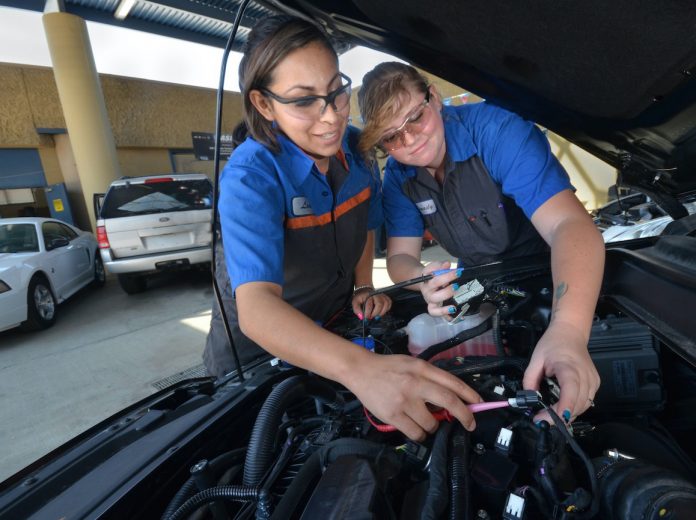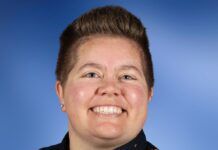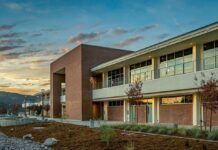Cuyamaca College’s Automotive Technology program and a coalition of independent repair shops are primed to launch a new associate degree program that will enhance paid hands-on training opportunities and lead to more jobs for graduates.
The Automotive Service Councils of California (ASCCA) Associate of Science Degree program is the state’s first associate degree program that combines classroom and online teaching with on-the-job training at independent repair shops.
Cuyamaca College’s Automotive Technology program and a coalition of independent repair shops are primed to launch a new associate degree program that will enhance paid hands-on training opportunities and lead to more jobs for graduates.
The Automotive Service Councils of California (ASCCA) Associate of Science Degree program is the state’s first associate degree program that combines classroom and online teaching with on-the-job training at independent repair shops.
The program will kick off at 1 p.m. Friday, Sept. 7, at Cuyamaca College’s Student Center in room I-207 . High school and college auto tech instructors and shop owners are encouraged to attend the free event, part of a three-day conference of ASCCA, the largest independent automotive repair council in the state whose members represent all areas of the auto repair industry.
“We want instructors at the high schools and other colleges to attend the launching because we want this to be a program they can recommend to their students that combines work experience with a solid education plan,” said Brad McCombs, an instructor and coordinator of the auto tech program, which enrolls about 250 students each semester.
McCombs added that the new degree program offers a good resource for students interested in eventually opening their own repair shops because of the numerous small-business owners who are members of the independent service council.
After working with the service council for about six years to develop the curriculum, the college expects to begin enrolling students in spring 2019. The two-year program includes all of the required training to meet industry standards and ASE certifications.
“Cuyamaca College is well-known throughout the state for the excellence of its career technical education programs, such as automotive technology,” President Julianna Barnes said. “We regard it part of our mission to meet the workforce needs of local businesses and industry.”
In addition to automotive classes and on-the-job training, students must complete general education classes to earn the ASCCA associate of science degree. Students are advised on which sponsoring shops and businesses to contact, but they are required to use the traditional job-seekers’ tools of résumé preparation and interviewing to obtain the sponsorships. As trainees, the students are expected to be hired for entry-level, minimum-wage positions with incremental raises.
The college has been offering similar programs in partnership with Ford and GM dealerships since the 1980s and ‘90s, and upon graduation, 99 percent of the graduates are hired by sponsoring dealerships with starting salaries of about $22 an hour. Within three years, depending on their specialization, they typically earn $50,000 to $70,000 a year.
With about 70 independent, ASCCA-affiliated businesses in San Diego County able to sponsor students, McCombs is confident the latest degree addition to the college’s auto tech program will enjoy similar success. And with the strong demand for technicians with the skills needed to maintain today’s high-tech vehicles, McCombs said the salaries for independent technicians are likely to mirror those of manufacturers’ shops.
McCombs said as the program gets established, the college intends to offer more lecture classes online to accommodate students who are working while pursuing their education.
ASCCA President Rocky Khamenian said the program is needed to address the critical technician shortage facing independent repair shops and added that Cuyamaca can serve as a model for other California community colleges.
McCombs said there is a major technician shortage across the country due to the shuttering of costly auto tech training programs, as well as the graying of its workforce. According to the Bureau of Labor Statistics, the job outlook for auto technicians is very good with a projected growth rate of six percent from 2016-2026.
“We have an aging population of master technicians and we expect the problem to grow as the attrition rate accelerates.” McCombs said.
Dara Bakhshandeh, treasurer of the San Diego chapter of ASCCA, said the local service council is promoting the program as a plus for the industry because of the excellent training and education students will receive.
“For this program to be successful, it requires participation from all local ASCCA shops, who will be essential for on-the-job training,” Bakhshandeh said. “I encourage all members to join us on Sept. 7 to learn about this new program and find out how they can become involved.”
Online registration is available at www.ascca.com.
Cuyamaca College is located at 900 Rancho San Diego Parkway in El Cajon.














